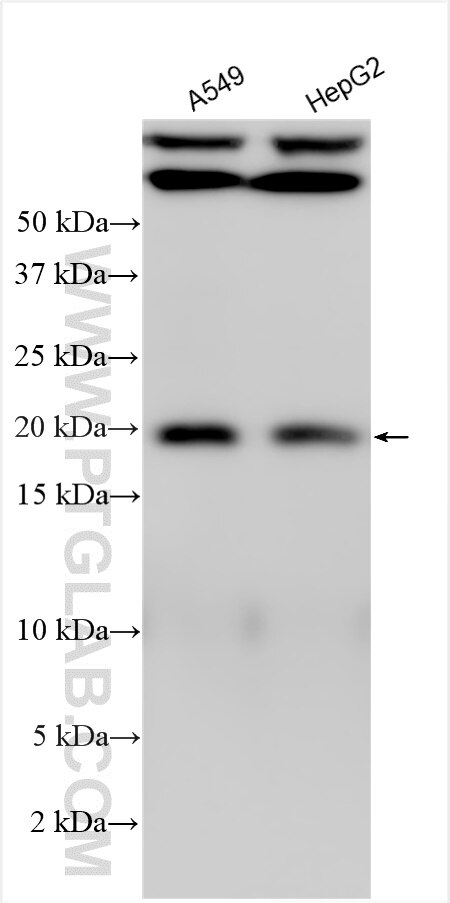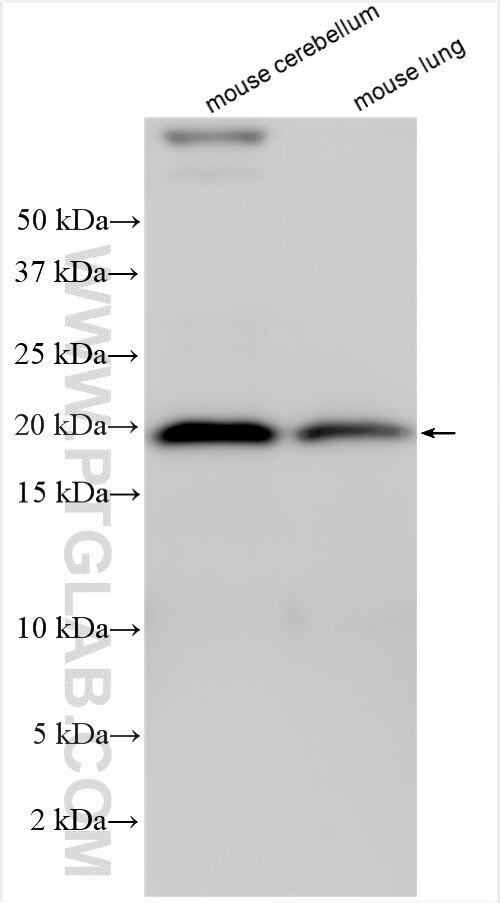Anticorps Polyclonal de lapin anti-C14orf126
C14orf126 Polyclonal Antibody for WB, ELISA
Hôte / Isotype
Lapin / IgG
Réactivité testée
Humain, souris
Applications
WB, ELISA
Conjugaison
Non conjugué
N° de cat : 23923-1-AP
Synonymes
Galerie de données de validation
Applications testées
| Résultats positifs en WB | cellules A549, cellules HepG2, tissu de cervelet de souris, tissu pulmonaire de souris |
Dilution recommandée
| Application | Dilution |
|---|---|
| Western Blot (WB) | WB : 1:500-1:2000 |
| It is recommended that this reagent should be titrated in each testing system to obtain optimal results. | |
| Sample-dependent, check data in validation data gallery | |
Informations sur le produit
23923-1-AP cible C14orf126 dans les applications de WB, ELISA et montre une réactivité avec des échantillons Humain, souris
| Réactivité | Humain, souris |
| Hôte / Isotype | Lapin / IgG |
| Clonalité | Polyclonal |
| Type | Anticorps |
| Immunogène | C14orf126 Protéine recombinante Ag21053 |
| Nom complet | chromosome 14 open reading frame 126 |
| Masse moléculaire calculée | 168 aa, 19 kDa |
| Poids moléculaire observé | 19 kDa |
| Numéro d’acquisition GenBank | BC010618 |
| Symbole du gène | C14orf126 |
| Identification du gène (NCBI) | 112487 |
| Conjugaison | Non conjugué |
| Forme | Liquide |
| Méthode de purification | Purifié par affinité contre l'antigène |
| Tampon de stockage | PBS avec azoture de sodium à 0,02 % et glycérol à 50 % pH 7,3 |
| Conditions de stockage | Stocker à -20°C. Stable pendant un an après l'expédition. L'aliquotage n'est pas nécessaire pour le stockage à -20oC Les 20ul contiennent 0,1% de BSA. |
Informations générales
C14orf126, also named D-aminoacyl-tRNA deacylase 2 (DTD2), can deacylate L-Ala due to a relaxed specificity for substrate chirality caused by the trans conformation of the Gly-Pro motif in the active site. Plants are unique in possessing two distinct chiral proofreading systems, D-aminoacyl-tRNA deacylase1 (DTD1) and DTD2, of bacterial and archaeal origins, respectively.
Protocole
| Product Specific Protocols | |
|---|---|
| WB protocol for C14orf126 antibody 23923-1-AP | Download protocol |
| Standard Protocols | |
|---|---|
| Click here to view our Standard Protocols |



